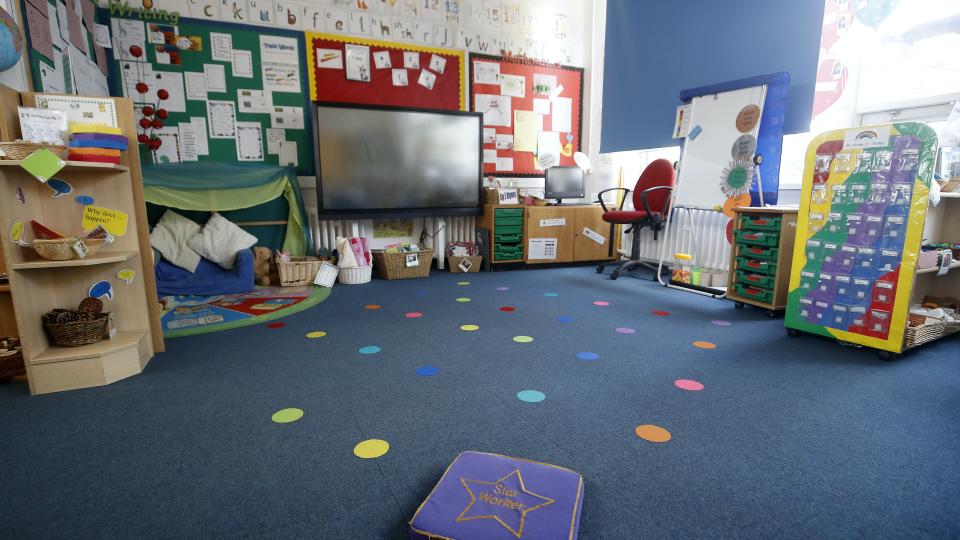Poorer families ‘less likely to want to send children back to school’

Poorer families are less likely to want to send their children back to school amid the Covid-19 pandemic, despite these pupils having fewer opportunities for home learning, a survey suggests.
Children from better-off households are spending an additional 75 minutes a day on educational activities than their peers from the poorest households during the lockdown, research has found.
Pupils from the wealthiest families will have done seven full school days’ worth of extra home learning by June 1, when more pupils could return to school, according to an Institute for Fiscal Studies (IFS) report.
If children do not go back to school until September, the gap between the most affluent and the poorest pupils will double to three school weeks, the study warns.
The research comes as the chief executives of 22 academy trusts warn schools must reopen soon to avoid “irreparable” damage to vulnerable children.
Prolonged absence from school could be academically and socially “calamitous” for disadvantaged pupils, said the leaders responsible for some 350,000 children in a signed statement.
The signatories, who included Dixons Academies Trust’s Sir Nick Weller and Dame Rachel de Souza of Inspiration Trust, said: “If we do not take action and reopen schools soon, the impact of lost learning could be irreparable. The gaps between the ‘haves’ and the ‘have nots’ in our communities are widening daily and we will face years of frantic endeavour, in inevitable austerity, to compensate for this dislocation of learning.”
Meanwhile, Policing Minister Kit Malthouse suggested schools may not be allowed to return on June 1, telling BBC Radio 4’s Westminster Hour programme that: “The Prime Minister said when he announced (the date) that it’s conditional on the numbers going in the right direction.”
Fewer than half of parents surveyed by IFS said they would be willing to send their children back to school if they had the choice, but the higher-income families are more keen for a return to school than lower-income families.
The report warns: “This risks a situation where the children struggling the most to cope with home learning remain at home while their better-off classmates are back in the classroom.”
The findings come after ministers and teaching unions were told to “stop squabbling” and agree on a plan for a phased reopening of primary schools from June 1.
Anne Longfield, the children’s commissioner for England, said many children were struggling away from the classroom, and the lack of education would have an impact on their future life chances.
Researchers have called on the Government to address the disparities between children from different backgrounds during school closures, as they warn the crisis is likely to widen attainment gaps.
Alison Andrew, senior research economist at IFS and co-author of the report, said: “This risks leaving the children least able to cope with home learning remaining at home, even as their better-off classmates return to school.”
Lucy Kraftman, research economist at IFS and co-author of the report, added: “These differences will likely widen pre-existing gaps in test scores between children from different backgrounds.”
Kevin Courtney, joint general secretary of the National Education Union, said teachers and school staff were well aware of the additional struggles that children from disadvantaged backgrounds have to contend with: “Internet access is not the norm, space to learn is not available and many deal with high stress levels due to the daily struggle of worrying about money for basics such as food, clothing and heating.
“Schools are doing all they can to support these children during lockdown by sending out out care packs and learning packs.”
He said children should go back to school as soon as it is safe: “For that to happen Government needs to reassure parents and schools that it is safe to do so by publishing the science behind a June wider reopening, and have testing, tracking and tracing in place for reopening.”
A Department for Education spokeswoman said: “We will do whatever we can to make sure no child, whatever their background, falls behind as a result of coronavirus.
“We have set out plans for a phased return of some year groups from June 1 at the earliest, in line with scientific advice.”
Researchers surveyed 4,157 parents online in England, with children in eight different school years aged between four and 15, between April 29 and May 12.

 Yahoo News
Yahoo News 